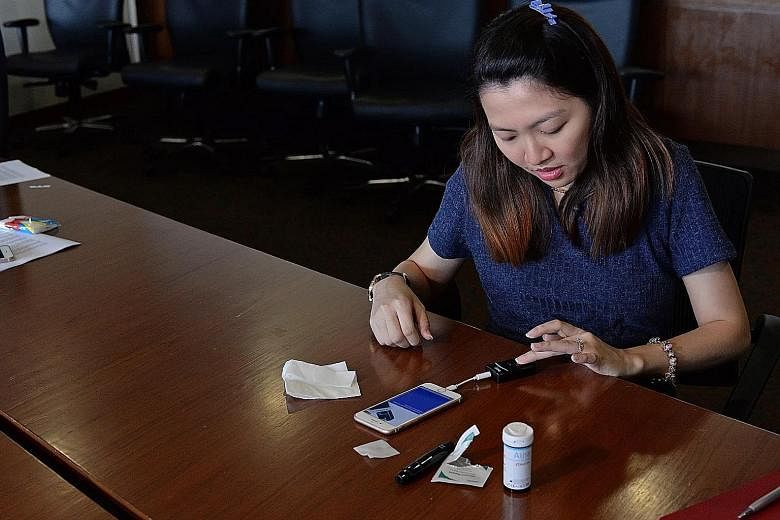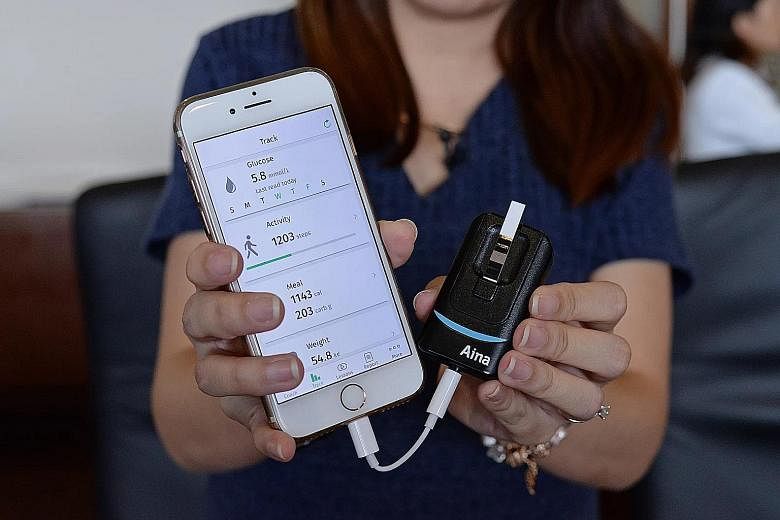Mrs Shane Lee, 40, has again developed gestational diabetes during her fourth pregnancy.
While she is much better at managing the condition now, she recalls the anxiety during her first pregnancy. "You don't know what you are doing, whether right or wrong, how much you can eat," said the regional business manager, who developed the condition during her first three pregnancies as well.
Doctors at the National University Hospital (NUH) hope that a mobile app, which can track a patient's weight and blood glucose levels, can help pregnant women like her who worry about what they eat, and the impact on their unborn children. The app was developed by NUH, medical technology firm Jana Care and the National University of Singapore's Saw Swee Hock School of Public Health.
Gestational diabetes occurs because of high blood sugar levels that develop during pregnancy.
NUH is now conducting clinical trials with Jana Care. The trial was started last month and has involved 20 women with gestational diabetes. The goal is to recruit 340 in the next 10 months. Half the participants will use the app as well as a special weighing scale, and the rest will be in a control group.
The condition affects one in five pregnant women in Singapore - one of the highest rates in the world. Women who are obese, with a family history of diabetes or had gestational diabetes during a previous pregnancy, are at high risk of developing the condition.
They also face a higher risk of developing diabetes afterwards, and are more likely to give birth to heavy babies who are at higher risk of developing childhood obesity.
Those using the app in the trial will be given a device that reads blood glucose test strips. The readings can be synced to the app, which also reads the weighing scale. Typically, a pregnant woman gains between 12kg and 15kg during pregnancy.
The app can also track food intake and exercise, and comes with information on gestational diabetes as well as a robotic health coach, which prompts the women when their blood glucose levels are high or low, or when weight is gained too quickly.
Dr Yew Tong Wei, a consultant at NUH's division of endocrinology and principal investigator of the study, said women with gestational diabetes currently review their blood glucose readings only when they see the doctor, typically once every two weeks, or monthly.
"They just accumulate a month of readings, they come, and by then they have forgotten what might have caused a high reading. This app gives immediate feedback on the scores," he said.
The results of the study are expected to be ready in about 18 months.


